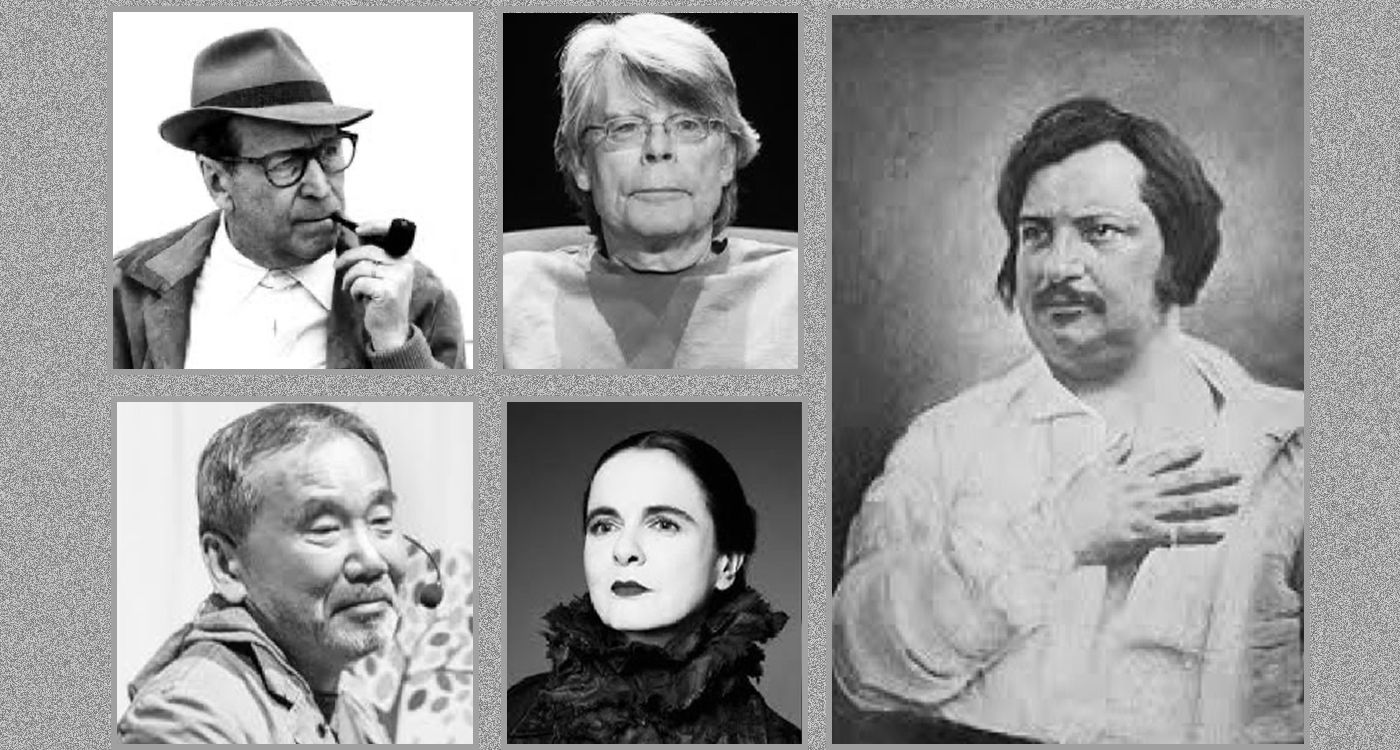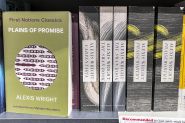
Insomniacs, obsessives or outright borderline: famous writers never write “like everyone else.” This two-part deep dive explores their eccentric routines, often as bewildering as the novels they left to posterity.
The act of writing is peculiar in that it lies at the crossroads of inspiration and method – between the sudden emergence of words and the mechanics of movement. For some authors, routine becomes a sacred ritual, a meticulously orchestrated sequence of gestures meant to ward off the terror of the blank page. Others find in it a form of psychological balance, even physical survival. Writing isn’t just about sitting down and putting words on paper – it requires the right lighting, the right pen, the right dose of coffee or, in some cases, the complete absence of clothing.
This first article focuses on the tireless devotees of regularity, the marathoners of literature, those for whom writing was less a whim than a daily act of war.
Balzac and the Lethal Caffeine Habit
The case of Honoré de Balzac verges on Greek tragedy. The author of La Comédie humaine imposed upon himself a titanic work schedule: he would wake at 1 AM and write until 8 PM, sometimes up to 15 hours a day. His only weapon? Coffee. Not just a few cups like ordinary mortals – no, up to fifty a day. Preferably black, strong and nearly burnt. He even claimed to eat spoonfuls of coffee grounds at times. This excessive consumption, combined with chronic sleep deprivation, hastened his demise. He died at 51, struck down by hypertension, leaving behind an immense body of work… and a fossilized liver.
Haruki Murakami, the Minimalist Monk
At the other extreme of Balzac’s excess, Haruki Murakami embodies Zen-like discipline. The Japanese author applied an almost ascetic method to writing: up at 4 AM, writing for five to six hours, then either running or swimming, all before lights out at precisely 9 PM. “To write a novel, I need as much physical endurance as mental endurance,” he explained. His routine resembled that of an elite athlete – or a Buddhist monk synchronized with a Swiss timer. The result: a body of work that is deeply dreamlike yet structured with clockwork precision. A narrative marathon.
Stephen King, the Horror Timekeeper
Though the author of Carrie and The Shining fills his novels with demonic creatures and flesh-eating clowns, his own writing routine is as neat as a surgical incision. Every day, without exception, King writes at least 2,000 words. He starts at the same hour, in the same place, and forbids himself any distractions until he reaches his quota. This – almost military – discipline allows him to publish an average of one novel per year, a level of productivity that is either inspiring… or terrifying. Because with King, even the method itself is a lurking monster, waiting for the slightest lapse in vigilance.
Amélie Nothomb, the Morning Dictator
If we were to map out the early-rising writers, Amélie Nothomb would sit at the top of the pyramid. Every day, she writes from 4 AM to 8 AM, religiously, armed with a blue Bic Cristal pen and half a liter of black tea. She describes herself as living under a dictatorship – her own – and refusing any compromise, whether due to illness or lack of inspiration. Beyond her sheer tenacity, what stands out is the obsessive ritualization of the act: same pen, same tea, same hours. For her, writing is an exorcism, an intimate ceremony that feels like a battle. A battle against herself – and against the void.
Georges Simenon, the Overalls-Clad Monk
The creator of Maigret took work seriously. When starting a new novel – something he did about once a month – he would isolate himself completely, forbid any visitors, and wear the same clothes until the manuscript was finished. Legend has it that he could write an entire novel in seven days, without edits, in one continuous flow. He compared himself to a medium: “The novel comes down into me, I just have to transcribe it.” In reality, this reveals the absolute mastery of his own rhythm. For Simenon, style was born from a trance – a perfectly controlled one.
Rigor or Superstition?
All these writers share an unshakable faith in the power of ritual. Whether it’s waking up at dawn, locking oneself away for a week, cranking out 500 words or downing a liter of tea, they understood that writing isn’t just about inspiration. It’s a battle with reality, a struggle against the world’s distractions. And they fight it with repetitive, almost sacred gestures.
Literature, then, is not a hobby. It is a profession. Sometimes, a controlled pathology. And often, a life choice that dictates its own hours, its own tools, its own sacrifices – like any great passion.
In the next installment, we will delve into the more eccentric – and sometimes downright bizarre – routines of writers, for whom the act of writing involved anything from the scent of rotting apples to bathing in champagne.




Comments